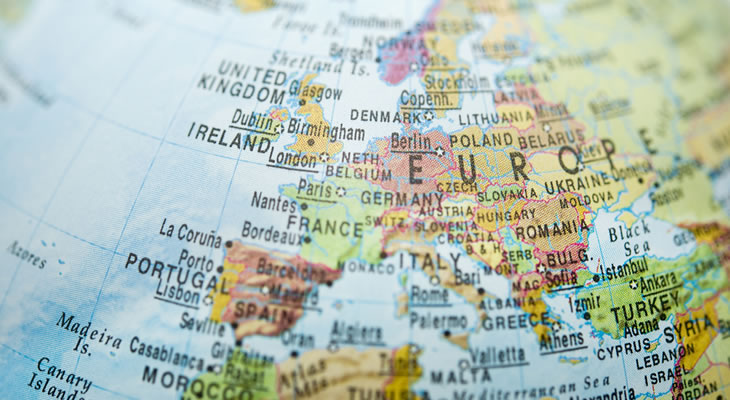Pound Euro (GBP/EUR) Exchange Rate Muted as Services ‘Stuttered and Stalled’
The Pound Euro (GBP/EUR) exchange rate was left flat today with the pairing currently trading at around €1.1583.
The Pound (GBP) was able to edge higher on Tuesday ahead of this week’s Bank of England (BoE) monetary policy meeting, although election uncertainty capped any gains.
Meanwhile, data revealed that the service sector growth was left flat in October as new business fell for the second month in a row.
While the UK services PMI ticked up from 49.5 to 50, the figure was among the lowest between 2009 and 2019, a fact which weighed on GBP currency rates.
Commenting on the services PMI, Duncan Brock, Group Director at the Chartered Institute of Procurement and Supply noted:
‘Without any real expectation for significant change in October, the sector stuttered and stalled delivering a lifeless set of results as new business from domestic and export markets dried up and orders fell for the second month in a row.
‘The sector’s main difficulties are largely of Brexit’s making and with another deadline comes more indecision and delay. Businesses are putting off their investments for happier times and consumers are saving their pennies in case rising costs have a more severe impact on their daily lives. Companies are waiting for a resolution by the UK Government to salvage the current situation so workflows can begin again at healthier levels.’
Euro (EUR) Subdued as ECB Chief Economist Signals Willingness to Work With All Sides
The Euro (EUR) was left largely muted against Sterling today following the first speech from the new President of the European Central Bank (ECB).
In her first speech, Christine Lagarde signaled a willingness to work with all sides as she praised one of the bank’s top critics.
While the speech failed to touch on monetary policy, the incoming President honoured former German Finance Minister, and current Bundestag President, Wolfgang Schaeuble.
Schaeuble has often criticised the ECB, and while Lagarde avoided the issue of the long-running feud between the bank and Germany, the decision to speak in Berlin after taking office at the start of the month will likely be seen as a signal she is willing to mend ties.
German Manufacturing Sector Stuck in Recession
At the start of the week, data revealed that the Eurozone’s largest economy saw its manufacturing sector mired in recession in October, leaving the single currency under pressure and muted against Sterling.
With new orders slumping for the 13th month in a row and jobs in the sector being cut at the fastest pace in close to a decade, the German manufacturing PMI edged up slightly to 42.1 from September’s 41.7.
While the reading was better than the initial estimate, it was still the second-lowest since June 2009 and the prolonged recession is perceived as a threat to the domestic economy as the sector continues to shed jobs.
Commenting on Monday’s data, Markit Principal Economist, Phil Smith said:
‘The German manufacturing sector remains in recession and continues to pose a threat to the domestic economy through a rising number of factory job losses. Employment across the goods-producing sector is now falling at the fastest rate for the best part of ten years, though it should be said the decline is nothing like that seen during the depths of the global financial crisis, and is so far mainly restricted to contractors.’
Pound Euro Outlook: Will Disappointing German Services PMI Weigh on EUR?
Looking ahead to Wednesday, predictions are for the Euro to slide against the Pound following the release of the German services PMI.
If October’s PMI edges lower than expected on the back of the German manufacturing PMI, it is likely the single currency will slide.
Meanwhile, if the bloc is hit with further disappointing data in the form of weak retail sales it could send the Euro lower.
If German retail sales for September fail to rise as high as expected, it could cause the Pound Euro (GBP/EUR) exchange rate to rise.


Comments are closed.